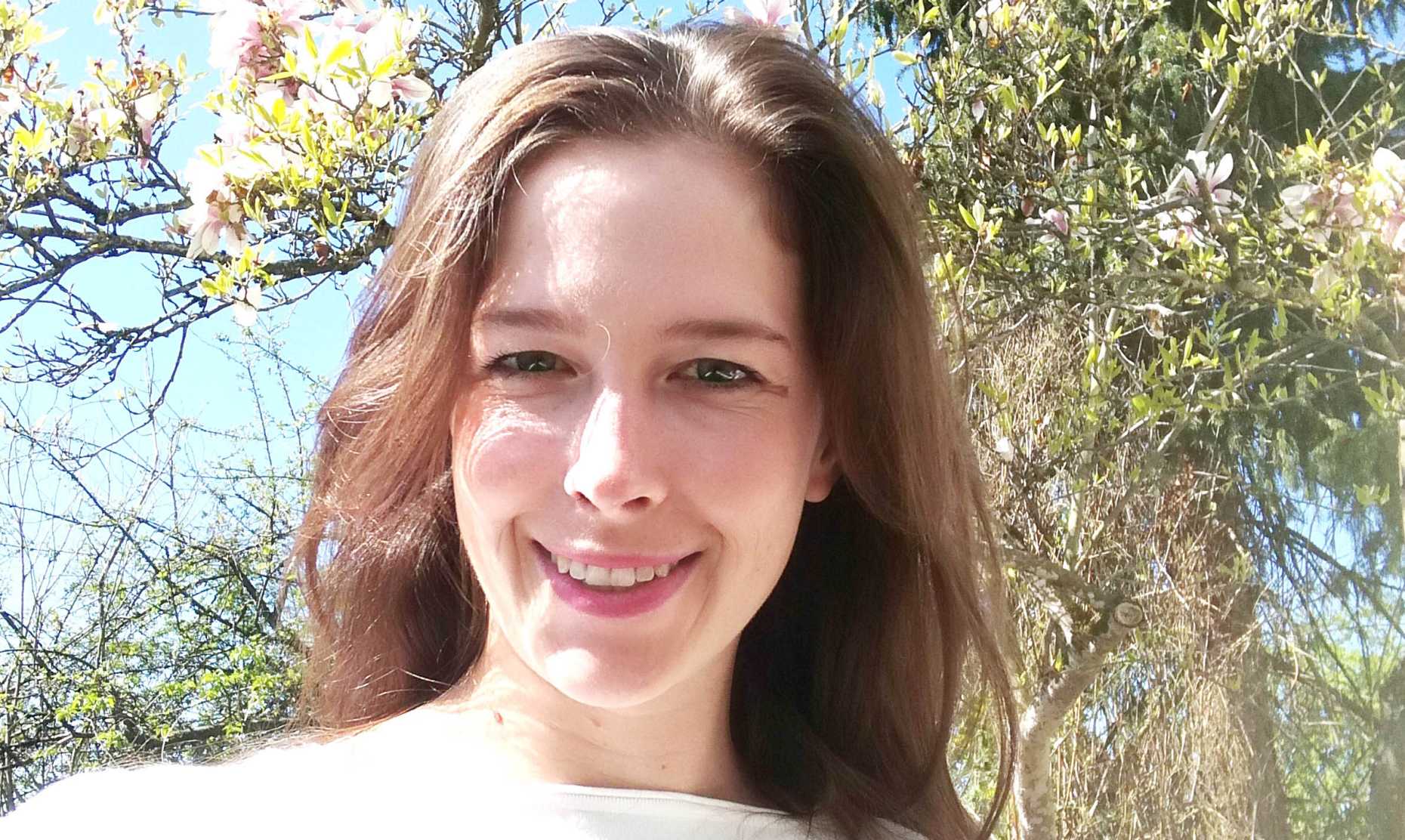Meet Sarah Brüningk working on the predictability of the onset of Alzheimer’s disease
The German Postdoctoral researcher has not yet met any of the team members of the Machine Learning and Computational Biology Lab in person – she joined the D-BSSE during the COVID-19 pandemic. But thanks to the vibrant and virtual way of working, Sarah quickly got a grasp on her research which aims to improve the prediction of the onset of Alzheimer’s disease by transferring information from imaging data of patients suffering from traumatic brain injuries.

What did you know about D-BSSE before you came here, and what was your motivation to come to ETH Zurich?
After finishing my PhD thesis on biophysical modelling of combination treatments for cancer I knew that I wanted to stay in academia and continue working in the field of computational biology. I first started as a postdoc at the Institute of Molecular Systems Biology at ETH Zurich where I gained a first insight into machine learning applications for cancer treatment response prediction. There I already got to know the D-BSSE and some of the exciting projects going on at the department. The head of my research gorup moved to a different University abroad and I was happy to be given the opportunity to stay at ETH and work in a more machine-learning oriented team. I think ETH Zurich is a fantastic place for research and the D-BSSE offers great opportunities by bringing together computational and experimental researchers. I am looking forward to improving my computational skills and be part of a great team and I think the Machine Learning and Computational Biology (MLCB) Lab, as a world-leading team, is the perfect environment for this.
What were your expectations and were your expectations met since you arrived in Basel?
With the ongoing pandemic I have unfortunately only been ‘in Basel’ to pick-up my new laptop… but I am glad to be part of a vibrant group that works very well together from home too. When I joined, I was hoping to learn more about machine learning applications for time series data, how to combine multimodal data, and how to improve algorithm interpretability. Given the reputation of the MLCB group, I expected to be working as part of a team in a productive environment where I could learn from experts in the field and maybe contribute with my knowledge of biology and physics. After the two months I can say: my expectations have definitely been met. I have already learnt a lot and was also able to make use of my own expertise and contribute to some of the ongoing and my own research projects.
What were your first impressions?
Apart from my job interview I have unfortunately not met my team in person yet due to the ongoing pandemic. However, thanks to a very active virtual community, I have quickly gotten to know some of my new team members and despite not meeting in person we are working really well as a team which is very motivating. Everyone is very welcoming and we have regular meetings and discussions, but also informal chats and fun conversations. My projects are very interesting and I am indeed learning a lot, so I am excited to see how it will continue and am happy to be a part of this group.
Which research will you pursue at D-BSSE?
As part of a small subgroup, I will be working on using machine learning and deep learning to predict the onset of Alzheimer’s disease based on MRI imaging timeseries. Specifically, we want to transfer knowledge about the similarities between dementia following traumatic brain injuries and Alzheimer’s disease through machine learning. By evaluating and improving the interpretability of this computational approach, we hope to understand better the biological mechanisms responsible for the development of Alzheimer’s disease. As a side-project, I will also be involved in the current COVID-19 epidemiological modelling in the MLCB group.
Which hobby do you hope to pursue in Switzerland?
I love to be outdoors going on long hikes or bike tours, but I also enjoy horse riding very much and found a lovely horse that I take care of multiple times per week. I have also done a few triathlons in the past and am looking forward to practicing my swimming skills in the beautiful Swiss lakes this summer. After living in London for several years it is great to be back on the countryside around Zurich and Basel and be able to have all these activities right at your doorstep.
Many thanks, Sarah, and all the best with your research!
Sarah Brüningk grew up in Munich, Germany where she studied physics at the Technical University and focussed in her Master thesis on medical physics of radiation therapy. After working for a few months as a medical physicist in clinical radiotherapy she moved to London, UK, for a PhD at the Institute of Cancer Research investigating the biological effects of combination treatments of radiation and high intensity focused ultrasound in a project combining biological wet lab and computational work. Sarah moved to Switzerland for her postdoctoral studies at the Institute of Molecular Systems Biology at ETH Zurich. Here she worked on the prediction of response of metastatic melanoma patients to combination immunotherapy. In April 2020, she became a postdoctoral researcher in the Machine Learning and Computational Biology Lab headed by Karsten Borgwardt.